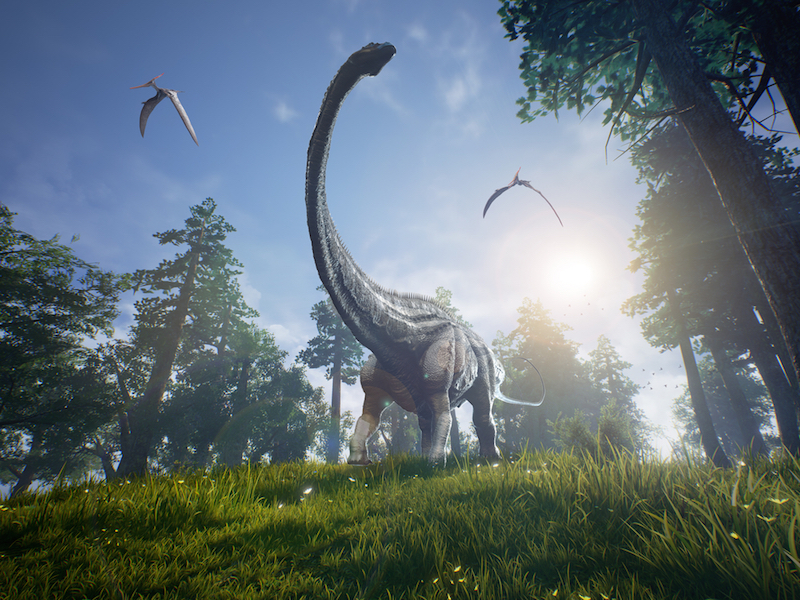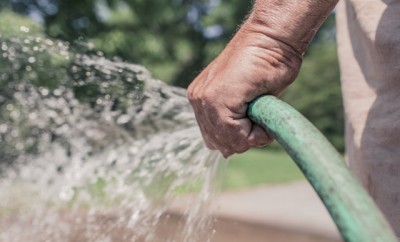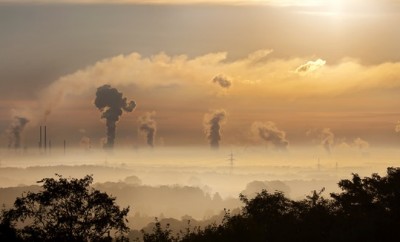Environment
Climate change may have influenced extinction of dinosaurs

Image: Herschel Hoffmeyer/Shutterstock
The long-debated scientific theories over the demise of the dinosaurs now have even more information to consider. Although there is little dispute regarding the massive asteroid hit that led to the Cretaceous-Paleogene mass extinction, some scientists insist there was more to the story.
The asteroid’s crater and resulting disasters
Mexico’s town of Chicxulub, of the Yucatan peninsula, is the location of the spot believed to have been the giant asteroid’s point of impact 65 million years ago, as evidenced by an enormous crater. But the asteroid may not have been the only cause of the mass extinction after all. According to a new study in the journal Nature Communications, climate change contributed to the extinction of a considerable portion of life long before the asteroid impact was sustained. This initial warming period caused a weakened level of biodiversity, which made remaining life even more vulnerable to extinction after the hit. Since the asteroid impact alone is described in a former University of Texas study to have “produced fires, acid rain and tsunami-like destructive waves [while] gouging a crater nearly eight miles deep and [sending] 12,000 cubic miles of rock, dirt and debris spinning into the earth’s atmosphere,” it isn’t hard to conceive that years of additional climate challenges leading up to it didn’t help matters much.
What’s the new information?
Two phases of suspected global warming are now noted by the latest study’s researchers, including one related to massive volcanic activity in the prehistoric region of India, and another resulting from the asteroid hit itself. Dust and ash emitted from both the occurrences led to the blocking of sunlight and cooling temperatures within the short-term follow-up period, with subsequently longer periods of warming after the initial cooling phase concluded, due to massive ejections of greenhouse gas into the atmosphere.
The “One-Two” Punch
Sierra Peterson calls this combination of events her “theoretical ‘one-two’ punch (a boxing term, for those unfamiliar),” resulting in the calamitous end of nearly half of life on Earth, including all non-avian dinosaurs and 80% of living ocean creatures. Peterson, a co-author of the study from the University of Michigan, explains, “We find that the end-Cretaceous mass extinction was caused by a combination of the volcanism and asteroid impact.” The asteroid’s mark of the end of the Cretaceous period and beginning of the Tertiary period can be analysed in the chemical composition of fossilized remains, which were used in the latest research.
Fossilized shells told the story
Twenty-nine of such fossilized shells were examined to create a new temperature record from the end of the Cretaceous to the beginning of the Palaeogene eras. Research from a single noteworthy volcano discovered that ocean temperatures rose 7.8 degrees Celsius due to the long-term event’s damage. A second temperature spike lines up with the asteroid hit 150,000 years later. Says Peterson, “This new temperature record provides a direct link between the volcanism and impact events, and the extinction pulses – that link being climate change,” said Petersen. Her team eventually agreed that, “Pre-impact warming due to volcanism may have increased ecosystem stress, making the ecosystem more vulnerable to collapse when the meteorite hit.”
It’s clear that with current threats of climate disruption, this and other studies are essential to gaining a full understanding of catastrophic climate change events of the past in order to lessen our own contribution to any potential future mass extinction events.





0 comments